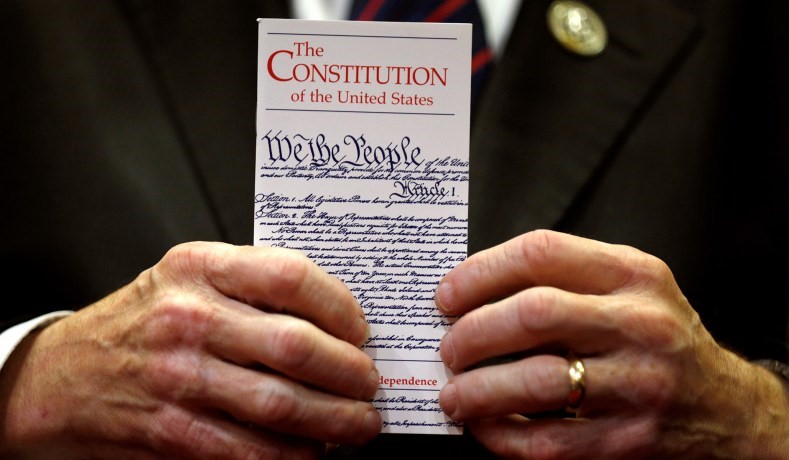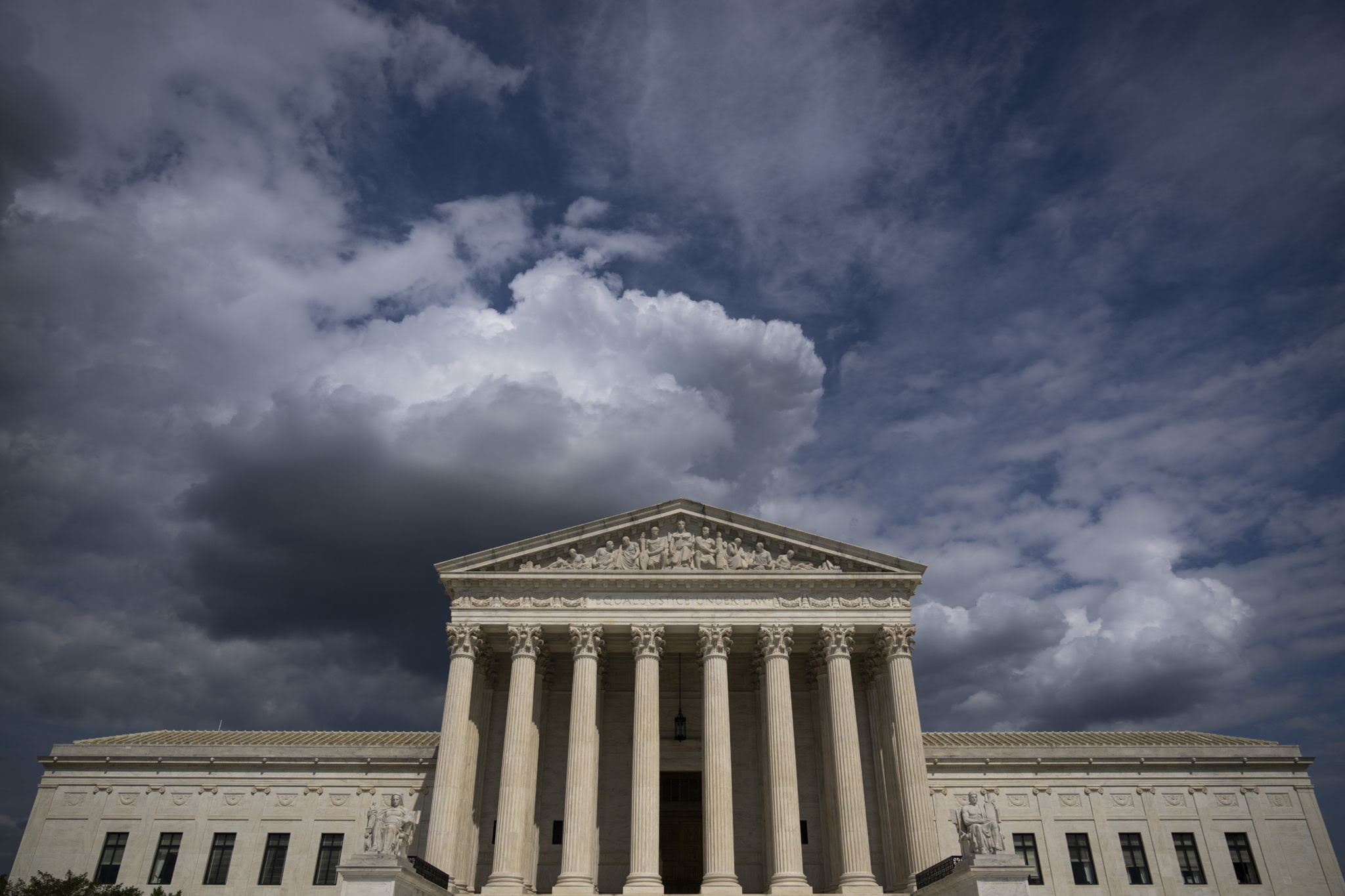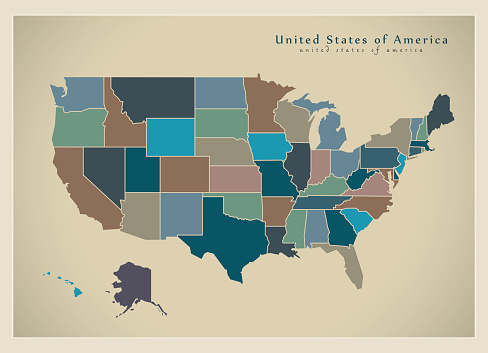
The Few Powers Defined – Pt. II
A Tabulation of the “Few and Defined” Powers Delegated to Congress as of 1791
By Ken Ivory – 2011
[Editor: This is Part II of the excerpt from the book, Where’s the Line by Utah Representative Ken Ivory]
The Constitution granted powers to each of the three branches of the federal government —Congress, the President, and the Judiciary. Although the principal enumeration was the list of congressional powers in Article I, Section 8, others were placed throughout the document.
Powers of Congress:
- Article I, Section 2, to provide for the decennial census;
- Article I, Section 4, to override state laws regulating the times, places, and manner of congressional elections, other than the place of senatorial elections;
- Article I, Section 8, to:
- lay and collect taxes, duties, imposts, and excises, to pay the debts and provide for the common defense and general welfare of the United States, but all duties, imposts, and excises shall be uniform throughout the United States (clause 1);
- borrow money on the credit of the United States (clause 2);
- regulate commerce with foreign nations, among the several states, and with the Indian tribes (clause 3);
- establish a uniform rule of naturalization and uniform laws on the subject of bankruptcies throughout the United States (clause 4);
- coin money, regulate the value of coin money and of foreign coin, and fix the standard of weights and measures (clause 5);
- provide for the punishment of counterfeiting the securities and current coin of the United States (clause 6);
- establish post offices and post roads (clause 7);
- promote the progress of science and useful arts, by securing for limited times to authors and inventors the exclusive right to their respective writings and discoveries (clause 8);
- constitute tribunals inferior to the supreme court (clause 9);
- define and punish piracies and felonies committed on the high seas and offences against the law of nations (clause 10);
- declare war, grant letters of marque and reprisal, and make rules concerning captures on land and water (clause 11);
- raise and support armies, but no appropriation of money to that use shall be for a longer term than two years (clause 12);
- provide and maintain a navy (clause 13);
- make rules for the government and regulation of the land and naval forces (clause 14);
- provide for calling forth the militia to execute the laws of the union, suppress insurrections, and repel invasions (clause 15);
- provide for organizing, arming, and disciplining the militia, and for governing the part of the militia that may be employed in the service of the United States, reserving to the states respectively, the appointment of the officers and the authority of training the militia according to the discipline prescribed by Congress (clause 16);
- exercise exclusive legislation in all cases whatsoever, over such district, which may not exceed 10 miles’ square, as may, by cession of particular states and the acceptance of Congress, become the seat of the government of the United States, and to exercise like authority over all places purchased by the consent of the legislature of the state in which the place shall be, for the erection of forts, magazines, arsenals, dockyards, and other needful buildings (clause 17); and
- make all laws which shall be necessary and proper for carrying into execution the powers listed in this section, and all other powers vested by the United States Constitution in the government of the United States, or in any department or officer of the United States (clause 18);
- Article I, Section 9, to authorize a federal officer to receive benefits from a foreign nation;
- Article I, Section 10, to fix the pay of members of Congress and of federal officers;
- Article II, Section 1, to:
- set the time for choosing electors; and
- establish who succeeded to the presidency after the vice president;
- Article III, Section 1, to:
- create exceptions to the supreme court’s appellate jurisdiction;
- fix the jurisdiction of federal courts inferior to the supreme court; and
- declare the punishment for treason;
- Article IV, Section 1, to establish the rules by which the records and judgments of states are proved in other states;
- Article IV, Section 3, to:
- manage federal property;
- dispose of federal property;
- govern the federal territories; and
- consent to admission of new states or the combination of existing states;
- Article IV, Section 4, to defend states from invasion, insurrection, and non- republican forms of government;
- Article V, Section 1, to propose constitutional amendments;
- Article VI, Section 1, to prescribe the oath for federal officers;
Additional powers delegated by amendments
- Amendment XIII, to abolish slavery;
- Amendment XIV, to guard people from certain state abuses;
- Amendment XVI, to impose taxes on income from any source without having to apportion the total dollar amount of tax collected from each state according to each state’s population in relation to the total national population;
- Amendment XX, to revise the manner of presidential succession;
- Amendment XV, XIX, XXIII, or XXIV, to extend and protect the right to vote; and
- Amendment XVII, to grant a pay raise to a sitting Congress.

Powers of the President:
- Article I, Section 7, to veto bills, orders, and resolutions by Congress;
- Article II, Section 2, to:
- serve as Commander-in-Chief of the armed forces;
- require the written opinions of executive officers;
- grant reprieves and pardons;
- make vacancy appointments;
- make treaties, subject to the advice and consent of the United States Senate;
- appoint foreign affairs officers subject to the advice and consent of the United States Senate;
- appoint domestic affairs officers subject either to the advice and consent of the United States Senate or pursuant to law;
- appoint judges subject to the advice and consent of the United States Senate; and
- authorize the president to fill designated inferior offices without senatorial consent;
- Article II, Section 3, to:
- receive representatives of foreign powers;
- execute the laws;
- commission United States officers;
- give Congress information;
- make recommendations to Congress;
- convene Congress on extraordinary occasions; and
- adjourn Congress if it cannot agree on a time;

The Supreme Court was granted:
- Original trial jurisdiction of:
- Cases affecting representatives of foreign countries;
- Cases to which a state was a party, subject to the rule (reflected in the Eleventh Amendment) that a state could not be sued by an individual without its consent (Art. III, Sec. 2, cl. 2).
- Appellate jurisdiction was granted over six other kinds of cases, subject to removal by Congress (Art. III, Sec. 2, cls. 1& 2).
- Lower courts were to be created by Congress, with Congress permitted to assign jurisdiction within limited areas (Art. I, Sec. 8, cl. 9; Art. III, Sec. 1 & Sec. 2, cl. 2).
The Powers Prohibited to The States
- No State shall:
- Enter into any Treaty, Alliance, or Confederation;
- Grant Letters of Marque and Reprisal;
- Coin Money; emit Bills of Credit;
- Make any Thing but gold and silver Coin a Tender in Payment of Debts;
- Pass any Bill of Attainder, ex post facto Law, or Law impairing the Obligation of Contracts; or f. Grant any Title of Nobility (Art. I, Sec 10, cl. 1).
- No State shall, without the Consent of the Congress, lay any Imposts or Duties on Imports or Exports, except what may be absolutely necessary for executing its inspection Laws: and the net Produce of all Duties and Imposts, laid by any State on Imports or Exports, shall be for the Use of the Treasury of the United States; and all such Laws shall be subject to the Revision and Control of the Congress (Art. I, Sec 10, cl. 2).
- No State shall, without the Consent of Congress:
- Lay any duty of Tonnage;
- Keep Troops, or Ships of War in time of Peace;
- Enter into any Agreement of Compact with another State, or with a foreign Power, or engage in War, unless actually invaded, or in such imminent Danger as will not admit of delay (Art. I, Sec 10, cl. 3)

Modern Map – USA
The Constitutional Powers Reserved to The States
These are merely some (not all) of the powers reserved to the States, listed for the public by advocates of the Constitution during the debates over ratification:
- Marriage
- Divorce
- Domestic relations
- Manufacturing (including labor relations)
- Business enterprises
- Agriculture
- Land use
- Land titles and conveyances
- Property outside of interstate trade
- Commerce wholly within state lines
- State and local governments
- Establishment and regulation of most crimes
- Civil litigation
- Social services, including care of the poor
- Training the militia and appointing militia officers
- Religion
- Education
- Roads (other than post roads)
- All other powers not delegated to the federal government
From the book, Where’s the Line? How States Protect the Constitution by Ken Ivory-2011; second edition.
info@Wheres’TheLineAmerica.com
[Ed: Do you notice any differences in the way our government runs today? We the people created the states from the colonies, upon separation from tyranny with our Declaration of Independence; the States then created the U.S. Constitution and approved its Bill of Rights and the attendant amendments.
Therefore, the majority of the power and authority rests with the people and their States. It follows that it is incumbent upon the people and States to reach the Constitutional Line and act to return America to the Founders compound ‘republic, federalist, constitutional Freedom Charters through the powers invested in them—Article V.]
Let Us Vote for FRA (fiscal responsibility amendment)
